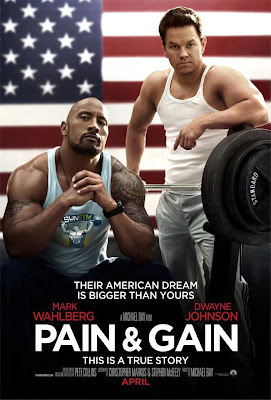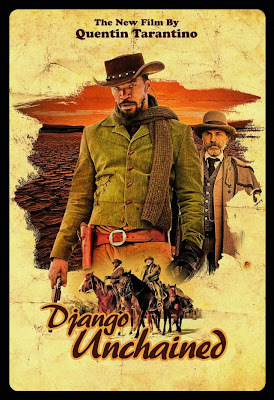Forgive The Logic And Enter The Thrills Of ‘Source Code’
Source Code = 3 ½ out of 5
Capt. Colter Stevens: It’s the same train, but it’s different.
If Hitchcock, Agatha Christie, and Philip K. Dick walked into a bar, they could come up with the plot for Source Code, a cracking new thriller, starring Jake Gyllenhaal as a time constricted helicopter pilot and directed by Duncan Jones, who previously made the great, sci-fi sleeper - Moon. The film works as a high concept sci-fi film, with some mysterious elements involved in its proceedings. While I find some of the logic presented to be problematic, it is the work of the actors, the direction, and the fitting score, which kept the movie at a solid level of B-movie entertainment.
Gyllenhaal stars as Capt. Colter Stevens, a helicopter pilot who was on tour in Afghanistan, only to suddenly find himself waking up on a train headed for Chicago. Things get a bit weird, as the woman sitting across from him, Christina (Michelle Monaghan), keeps referring to him as Sean. Things escalate even further when Capt. Stevens heads to the bathroom only to discover that there is a different face reflecting back at him in the mirror. Before finding out more about his situation, the train explodes.
Suddenly, Capt. Stevens now finds himself inside of a metal pod with a monitor hooked up to explain more about his situation. As it turns out, Capt. Stevens is being used in a device known as the “Source Code,” which has the ability to let a person inhabit the consciousness of another person in a past event for the span of eight minutes. The project is being led by military personnel, including Colleen Goodwin (Vera Farmiga) and Source Code’s creator, Dr. Rutledge (Jeffrey Wright). They have tasked Capt. Stevens with finding out who is responsible for the bombing on the train, as they believe that bomber is planning to strike again in a few hours time. As Capt. Stevens can only experience the same timeframe, within the same person, he must repeatedly investigate the train and its passengers, searching for clues that will lead him to the bomber. More complications arise, as Capt. Stevens begins to question whether or not he can change these events that have already occurred, despite the restrictions that the logic of Source Code must adhere to.
There are a number of films that I could compare this film to, but I am going to avoid the obvious ones and instead refer to 2010’s underseen thriller Buried, starring Ryan Reynolds. It is particularly in the way that both films open, which is why I thought of this. Similar to that film, Source Code kicks off with an opening credits sequence that would make Hitchcock proud, as the film presents various shots of the train traveling along, accompanied by a score by Chris Bacon that would feel fitting in any one of Hitch’s films. The rest of the film is a tight thriller in the way it condenses all of the action into only a few locations. The “whodunit” bomber plot along with the sci-fi element this film has incorporated into it is necessary by design, but at its core, this is a thriller with most of the focus put on a character in search of his own identity.
Stripping it down to basics, I think that Gyllenhaal does very well in this role. A dead serious take on this character would have hurt this movie dearly. Gyllenhaal (who is tackling his third time-bending related film) has a playful, earnest sense to him that keeps the character engaging and keeps you rooting for him to succeed. As he repeats the scenario multiple times, it is a fun experience to see him handle his situation in different ways. His work done in this film appropriately reflects the overall tone of the film when acting out inside of the train. There is also an honest quality to the in-between scenes, where Capt. Stevens is trying to understand the method behind the use of the Source Code device.
In addition to Gyllenhaal, I enjoyed both female leads in this film. Monaghan is very charming as the passenger attracted to her seemingly confused acquaintance. There is little for her to expand on, playing out the same eight minutes again and again, but she does justice for each iteration. Farmiga has the tricky job of playing a character who is not supposed to have much emotion for the subject involved, but I enjoyed the way her role played out as well. Unfortunately, the weakest role belonged to my favorite actor of this bunch. Jeffrey Wright is an exceedingly good character actor, but this film saddles him with the role of the evil scientist who must explain all of the rules and also throw frustrating bureaucracy into Capt. Stevens face. It is an element of the film that undercuts some of the drama.
As mentioned, the film was directed by Duncan Jones, who had previously directed the wonderful sci-fi/drama, Moon. If this was an arthouse film (like Moon, for instance), Source Code could easily played out less as a thriller, and more as an existential drama; however, this is a studio film with a decent budget to work with, so Jones’ sophomore effort follows properly in delivering on being bigger and louder. Still, there are some smarter elements at play here, which do not escape Jones’ as a director or screenwriter Ben Ripley, who manages to keep the first two acts of the film very engaging. From a visual standpoint, there are a number of moments that cleverly work to seem more regular than they are. A number of well edited sequences and use of special effects (both obvious and minimal) manage to work their way into this film, showing that restrained direction can at many times do all that is needed.
The problematic element comes in the form of the film’s resolution. The logic that Source Code presents is tough to keep consistent, and without spoiling anything, I feel that the final results of this film are trying to imply something that I do not want to buy into. There are some neat build ups to the ending though. The film could have ended a few times earlier than it did, but the way some plot elements are resolved managed to put me into a place where I was generally curious to see what else this film could have up its sleeves. Other than that, a few problems crept up here and there, but with the nature of a film like this, I was happy enough with the way it played out as a thriller.
I was not expecting this movie to measure up to Moon (if you have not guessed, I love that movie, go seek it out), but I was happy that Duncan Jones managed to make an original premise (for the most part) work in the form of mild blockbuster entertainment. Despite its share of logic problems, I am happy that I can file this away with another recent train-based thriller, Unstoppable, as a film that is genuinely entertaining and, for the most part, well handled in its approach. Source Code is a fine piece of work, offering up some fun sci-fi, an interesting story, and a solid lead performance by Jake “Prince of Time Travel” Gyllenhaal.
Final Note: There is an uncredited cameo in this film, which is kind of neat if you can make the connection between this film and the show this person starred in.
Dr. Rutledge: You cannot alter this reality, while inside the source code.Capt. Colter Stevens: I know, but I’m asking you to have the decency to let me try.












I really liked this film(although I would agree that it isn't nearly as good as the fantastic "Moon"). However, I did not share the problems with the logic that many did. True, many of the things inside of and workings of the "source code" didn't match what Gyllenhaal's character was told, but I think that the way the movie ended actually cleared that all up.
ReplyDeleteNo, the program could not function according to it's rules the way Rutledge said, but, once it's accepted that he's simply wrong about the workings of a program that he himself cannot personally test, I think the ending squares with how the program ACTUALLY seems to function.